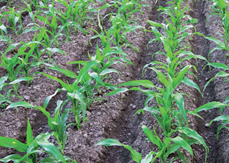Who will help run the farm?
Creating a pathway to a career on farm for the next generation of farm managers
 For many in the agriculture industry around the world, an issue of significant concern is the sourcing of staff with the required skill set to assist in managing the operation of their farm businesses. In an environment of technological advancement, demographic shifts, urban-rural disconnect and increasing size, farm businesses struggle to access an appropriately trained and skilled workforce from which to source labour to fill the increasingly multifaceted roles on farm. In particular, the industry has a ‘missing middle’, with a dearth of talent to fill middle management roles that assist in both the decision-making process and the implementing of on farm operations.
For many in the agriculture industry around the world, an issue of significant concern is the sourcing of staff with the required skill set to assist in managing the operation of their farm businesses. In an environment of technological advancement, demographic shifts, urban-rural disconnect and increasing size, farm businesses struggle to access an appropriately trained and skilled workforce from which to source labour to fill the increasingly multifaceted roles on farm. In particular, the industry has a ‘missing middle’, with a dearth of talent to fill middle management roles that assist in both the decision-making process and the implementing of on farm operations.
It is important to investigate existing programs based in industry, education and privately, that assist in a person’s development towards a career in farm management. Globally, many programs exist in this field. However, it is important to examine the potential links between these programs and initiatives. By doing so, the objective is to develop a career path that begins at a primary school age and allows individuals to develop an appreciation of agriculture, make a head start in an agricultural career and develop knowledge with an emphasis on tying that knowledge to experience, to ensure the skills and abilities built up have an applied nature and are ‘paddock ready’.
Whilst not all may be directly applicable at farm level, it’s important to provide a viewpoint that can provide industry with a bigger picture on the pathway required to bring more people into agriculture. This is through supporting and advocating for curriculum-based programs in the classroom, more children from a broader range of backgrounds can be introduced to agricultural whilst learning their Science, Technology, Engineering and Mathematics (STEM) subjects. It also suggests that by supporting school-based traineeships and apprenticeships, those who are inclined towards agriculture can be given a head start. In turn, by helping to establish and utilise links between vocational and tertiary education institutions, agriculture can further up skill its workforce and importantly keep all participants engaged in further learning.
The resolution of this issue is as multifaceted as the skills requirement of the ‘missing middle’. What is important is the creation of a pathway that engages the next generation of farm managers at a young age and sets them on a trajectory towards a career in agriculture and farm management that will allow them to enjoy professional and personal development, provide the opportunity to build a career in agriculture without necessarily coming from a farming background and to allow the agriculture industry to further build its capacity and not be hamstrung by a lack of human capital.
In a modern day environment of technological advancement, demographic shifts, urban-rural disconnect and increasing size of farm businesses, it is important that the agricultural industry – and more specifically the farming sector – work collaboratively to address the issue of the missing middle within the available farm workforce. In order to do so, the development of a career pathway starting from a school age is vital in attracting people to a career in farm management.
In order to attract the next generation to a future in farming, the industry needs to address the disconnect that exists between today’s youth and agriculture and that this can be achieved by using agriculture as a vehicle to deliver the curriculum requirements of STEM subjects in schools. Not only will this help to change the image of farming and agriculture in young people, but it has the potential to set the next generation of farm managers on a trajectory to a career in farm management.
 Once set on this path those individuals with an inclination to a career in agriculture must be further encouraged and given the opportunity to make a head start down that pathway. Whilst the future may be in thinking jobs, it is important that future managers are able to develop both the increasing levels of digital skills as well as building the traditional skills of a farmer.
Once set on this path those individuals with an inclination to a career in agriculture must be further encouraged and given the opportunity to make a head start down that pathway. Whilst the future may be in thinking jobs, it is important that future managers are able to develop both the increasing levels of digital skills as well as building the traditional skills of a farmer.
Equally as important is that this pathway captures not just those with an academic ability and desire for further education but those with a more vocational method of learning. The development and support of traineeship and apprenticeship programs is integral to bringing through potential managers on a pathway to management, not just a skilled plant operator or farm hand.
Once established on a pathway to a career in farm management, individuals must be able to continue learning whilst tying new knowledge to experiences gained on farm. Both industry and educational institutions recognise the value of ensuring this in producing a readily employable workforce. Continuing to develop partnerships between industry, educational institutions and farm businesses will help increase the capacity of a workforce with an applied knowledge. It will also allow achievable development opportunities for those already participating in the workforce and access for farm businesses of all sizes to up to date and specialised training for their staff, bringing learning to the farm.
The programs exist to help address the issue of the missing middle. What is required is for those programs to be adapted, supported, implemented and linked together to create a clear pathway for the next generation of farm managers, from school to a rewarding career in farm management.
Conclusions
It is important to advocate for the development and adoption of teaching packages which use agriculture as the vehicle to deliver STEM subjects in schooling systems on a national level. In collaboration with existing programs, develop a national outreach program to allow school age people the opportunity to spend time on farm and gain rural experience and an appreciation for where their food and fibre comes from.
It is equally important to utilise existing models for school-based traineeships to provide young people with an interest in agriculture a head start on their careers and building necessary skills, creating a more formalised training pathway and instilling importance in further education. In addition, expansion of existing programs linking farm businesses with new entrants and providing a continuation of pathway from trainee to further training is important.
There is need to support and advocate further partnerships between vocational and tertiary educational institutions allowing further learning to be tied to hands on experience, more readily accessible to more participants and streamlining the advancement of people to farm management positions. This will address the difficulty in recognising agricultural skills by developing more targeted and specialised qualifications by which to measure them by while also bringing more achievable specialist learning to the farm.